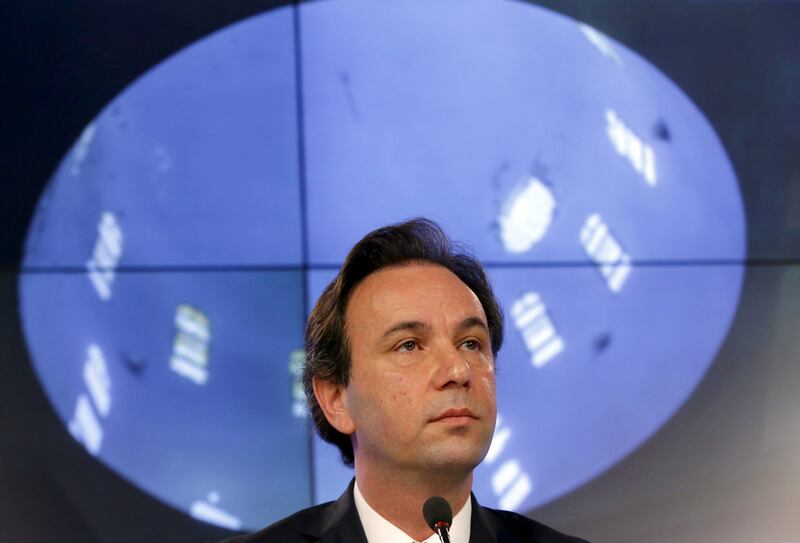MOSCOW // Russia has reiterated that it is not committed to keeping Syrian president Bashar Al Assad in power, the leader of the main Syrian opposition group said on Friday after talks in theRussian capital.
Speaking a day after talks with Russian foreign minister Sergei Lavrov, Syrian National Coalition president Khaled Khoja said that “the Russian leadership isn’t clinging to Bashar Assad” and is focusing on the need to preserve Syria’s territorial integrity.
They are “clinging to the Syrian state, its territorial integrity, and the preservation of its institutions,” he said.
It was not immediately clear whether Mr Khoja’s statement signalled a shift in Russia’s stance, or merely reflected Moscow’s attempt to rally Syrian opposition support for its new push to help mediate the conflict.
A spokeswoman for Russia’s foreign ministry said in response that Moscow’s position remained unchanged.
“We have always said that we do not support Assad in a personal capacity but that we support the legitimately elected president of Syria,” spokeswoman Maria Zakharova said.
In January 2014, Mr Lavrov assured the Syrian opposition that Moscow isn’t committed to Mr Al Assad, the group’s leader at the time said.
Mr Lavrov’s meeting with his Saudi Arabian counterpart earlier this week highlighted continuing sharp differences about the Syrian ruler’s fate. While Russia called for including Syrian government troops in a coalition fighting ISIL extremists, Saudi Arabian foreign minister Adel Al Jubeir rejected any role for Mr Al Assad.
Moscow has been a key backer of Mr Al Assad throughout the conflict that has dragged on for more than four years, leaving at least 250,000 dead and turning more than four million into refugees.
Mr Khoja reaffirmed on Friday that Mr Al Assad and his top lieutenants could not be part of a transitional government. He said he and the Russians did not discuss any candidates for the future interim authority, adding that his group and Moscow will continue consultations.
Mr also offered assurances that the National Coalition also stands for preserving state institutions.
Russian president Vladimir Putin launched Russia’s new mediation effort at a meeting in June with Saudi Arabian deputy crown prince Mohammed bin Salman. Earlier this month, Mr Lavrov conferred about Syria with US secretary of state John Kerry and the Saudi Arabian foreign minister in Qatar. Syrian officials have also recently visited Muscat where they held talks with Omani officials. The recent flurry of diplomatic activity have made many regional observers believe that there is currently serious efforts underway to reach a mediated end to the conflict.
On Friday, it was announced that a ceasefire between the warring sides in a Syrian town and two villages was extended until Sunday, sources on both sides said. The ceasefire between rebels on one hand and the Syrian army and its ally Hizbollah on the other began on Wednesday. It halted fighting in the town of Zabadani near the Lebanese border and the villages of Kfarya and Foua in the north-west.
Sources involved in the negotiations say they are focused on agreeing a withdrawal of rebel fighters from Zabadani and an evacuation of civilians from two Shiite villages in the north-west.
“There is no final agreement yet but talks continue,” a source on the insurgents’ side said.
* Associated Press, Bloomberg News, Reuters





